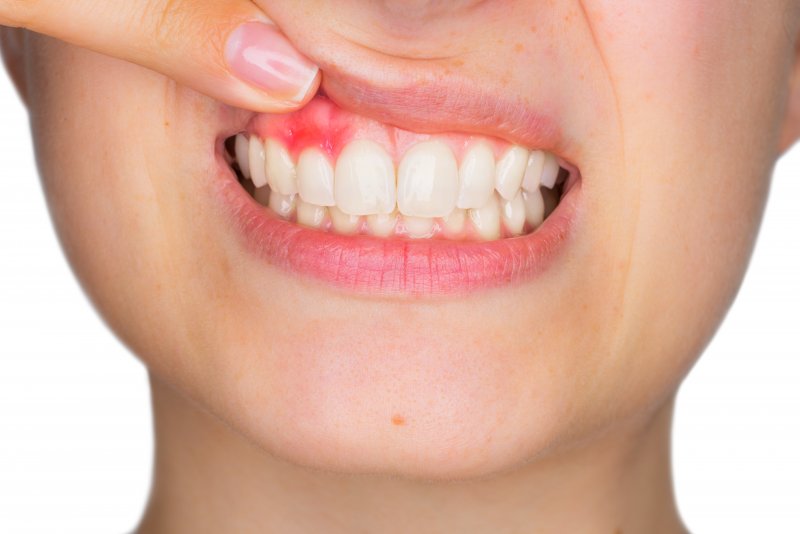
February is Gum Disease Awareness Month. That’s a good thing, because researchers estimate as many as 85 percent of Americans have some degree of gum disease, and many people don’t even know they have it. That’s a problem for your smile and your overall health too. Fortunately, gum disease therapy in Piedmont can halt the progress of this disease and reverse the effects. Read on to learn more about this common bacterial infection and treatment methods.
What is Gum Disease?
As just mentioned, gum or periodontal disease is a bacterial infection of the soft tissue covering the bone structure that holds your teeth in place. The infection begins with plaque, which is filled with bacteria. Plaque can be cleared away with daily brushing and flossing. However, in the case of poor oral hygiene, plaque begins to harden and becomes tartar, also called calculus, which cannot be brushed away.
What Are the Signs of Gum Disease?
At first, gum disease can be rather sly and hard to detect, which is why regular checkups with a dentist in Piedmont are so important. A hygienist will measure the depth of pockets between your teeth and gums; measurements greater than 4 millimeters can be a sign of gum disease.
Other outward signs of the disease include:
- Red and swollen gums that bleed when you brush or floss
- Chronic bad breath
- Teeth that look longer because of gum recession
- Sensitive teeth
- Painful chewing
- Teeth that are beginning to loosen
The Oral-Systemic Connection
The same bacteria that cause gum disease are linked to other serious illnesses such as osteoporosis, stroke, heart disease, Alzheimer’s and dementia, cancer, respiratory disease, diabetes and infertility.
How Is Gum Disease Treated?
If caught early, gum disease can be reversed with a more stringent oral hygiene routine at home. Brush and floss after every meal to prevent plaque build up.
A moderate level of infection requires professional cleaning. Called scaling and root planing, this process removes plaque and tartar. First, teeth are scaled above and below the gum line to eliminate tartar. Then, root planing helps smooth your teeth roots so plaque is less likely to deposit there.
An advanced case of gum disease may require surgical treatment. A dentist performs flap surgery to removed bacteria and infected tissue from around teeth roots. If necessary, gum graft surgery can replace tissue lost due to infection.
Pay attention to your gums every month in order to have a beautiful smile and a healthy body. February, however, is the perfect time to schedule a checkupwith a dentist in Piedmont who will examine your gums.
About the Practice
At Tylan Creek Family Dentistry, we have a team of six expert dentists who each have a passion for providing quality dental care. They believe in preventive dentistry, which is why they recommend checkups to ensure the health of your teeth and gums. For any questions, they can be reached through their website or by phone at (864) 428-0213.
